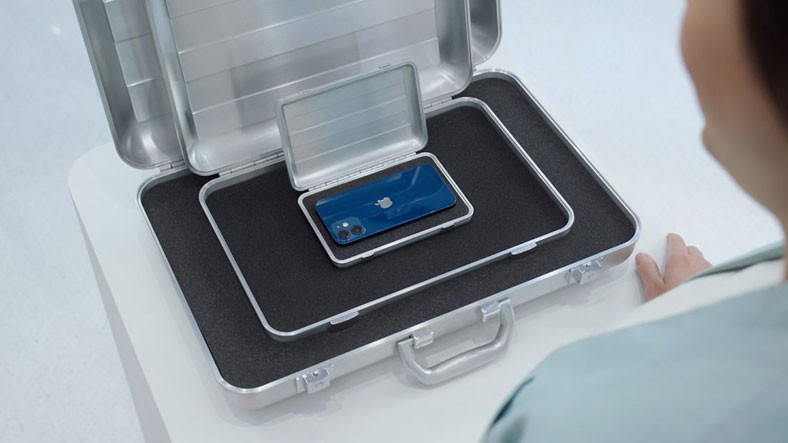When the novel coronavirus (SARS-CoV-2) infects a human cell, it hijacks cellular machines to make millions of new copies of itself. Image Credit: NIAID
The National Institutes of Health has started a phase 3 adaptive clinical trial to help evaluate the safety and effectiveness of three immunomodulator drugs in hospitalized adults COVID-19. Some COVID-19 patients experience an immune response in which the immune system releases excessive amounts of proteins that trigger inflammation known as a “cytokine storm,” which can lead to acute respiratory distress syndrome, multiple organ failure, and other life-threatening complications. The clinical trial aims to determine whether modulating this immune response can reduce the need for ventilators and shorten hospital stays. The study known as ACTIV-1 Immunomodulators (IM) will determine whether the therapeutics are able to restore the balance of an overactive immune system.
The study is part of the Accelerating COVID-19 Therapeutic Interventions and Vaccines (ACTIV) initiative and is expected to enroll approximately 2,160 adult patients with moderate to severe COVID-19 in medical facilities in the United States and Latin America. The National Center for the Advancement of Translational Sciences (NCATS), part of the NIH, will coordinate the study with funding from the Department of Advanced Biomedical Research and Development (BARDA) of the U.S. Department of Health and Human Services and Assistant Secretary for monitor readiness and response in support of the Trump administration’s Operation Warp Speed objectives. BARDA’s Clinical Studies Network will be responsible for operationalizing the study under a contract awarded to the contract research organization Technical Resources International, Inc.
“This is the fifth masters protocol introduced under the ACTIV partnership in an unprecedented time frame. It focuses on therapies that offer the greatest promise for treating COVID-19,” said Dr. med. Francis S. Collins, Director of the NIH. “Immunomodulators are another treatment in the ACTIV therapeutic toolkit to help manage the complex, cross-system conditions that can be caused by this very serious disease.”
ACTIV-1 IM is a randomized, placebo-controlled study using a master adaptive protocol. One of the hallmarks of master protocols is that they allow a coordinated and efficient assessment of multiple test equipment as soon as it is available. This allows maximum flexibility to quickly weed out drugs that are ineffective, identify those that do so in a short time, and quickly include additional experimental agents in the study.
The ACTIV public-private partnership selected three active ingredients for the study from a pool of over 130 immunomodulators, which were initially examined on the basis of various factors, including their relevance for COVID-19, strong indications of their use against inflammatory reactions and cytokine storms, and availability for large-scale clinical studies. The first active ingredients are infliximab (REMICADE) developed by Janssen Research & Development, LLC., One of the Janssen Pharmaceutical Companies of Johnson & Johnson; Abatacept (ORENCIA) developed by Bristol Myers Squibb; and Cenicriviroc (CVC), a late-stage screening agent developed by AbbVie.
All study participants will receive remdesivir, the current standard for treating patients with COVID-19 in the hospital. convalescent plasma and dexamethasone is approved at the discretion of the site investigator and in accordance with national guidelines. You will be selected at random to receive a placebo or one of the immunomodulators as an add-on treatment. The study examines the various combination treatment regimens in terms of disease severity, speed of recovery, mortality, and use of hospital resources.
Registration is now open and the trial is expected to last around six months. The results will be available shortly after the study is completed, or possibly sooner if analysis performed during the study shows that one or more of the drugs are beneficial. To ensure that the study is conducted in a safe and effective manner, an independent data and security oversight body will oversee the study and conduct regular reviews of the data collected.
The protocol team is chaired by William G. Powderly, MD, director of the Institute for Clinical and Translational Sciences and co-director of the Infectious Diseases Department at Washington University Medical School in St. Louis. The NCATS Clinical and Translational Science Awards (CATA) program and Trial Innovation Network will play a key role in adding US study sites and enrolling patients, including those from communities disproportionately affected by COVID-19.
“The agility and innovation of the CTSA program in conducting clinical trials, along with the extensive capacity and geographic reach of the network, have enabled it to deliver this important study rapidly,” said Christopher P. Austin, MD, director of NCATS Efficiently assess three different potential COVID-19 treatments at the same time, bringing new potential treatments to patients faster and providing valuable insights into the science of clinical translation. ”



